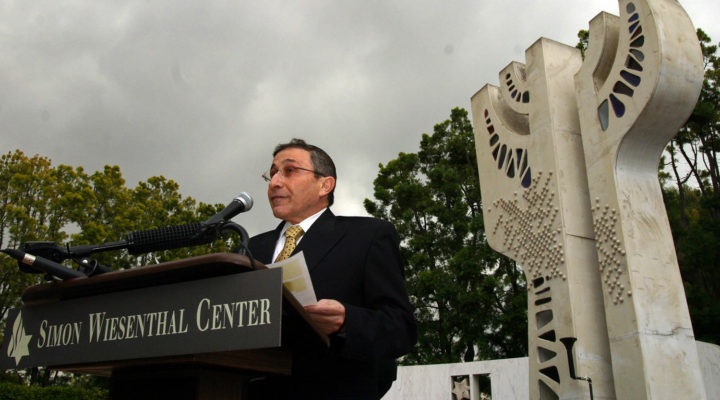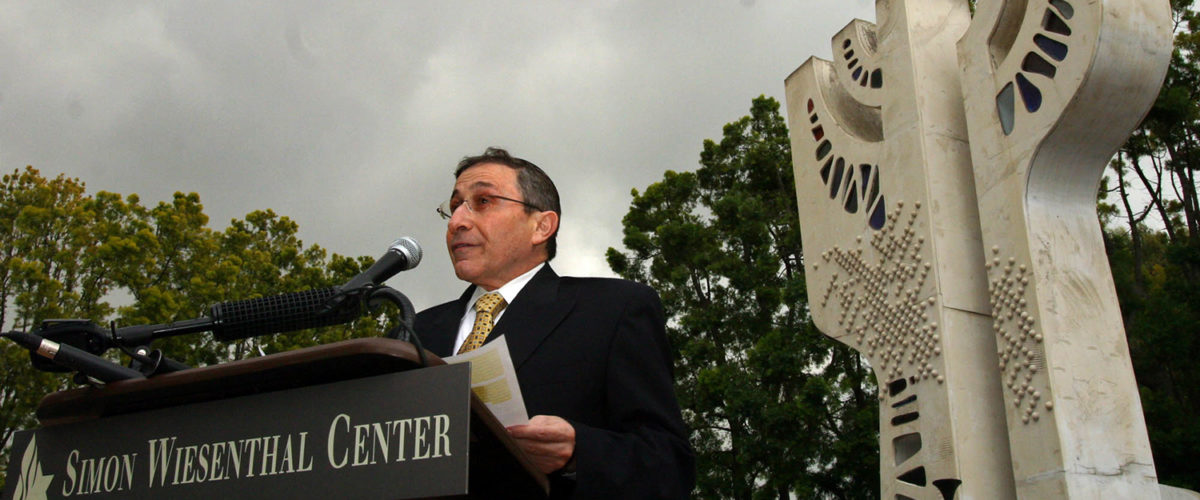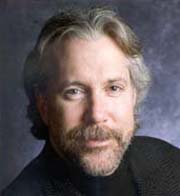The lineup of ministers selected to pray at Donald Trump’s inauguration reaffirms the divisions within American Christianity.
Conservatives view the selections of, say, Franklin Graham and Paula White, as affirming biblical and patriotic values and as support of unfettered capitalism. Liberals see the their selection as pr0moting the worst kind of religious patriotism along with the prosperity gospel.
But the president-elect didn’t stop there with his penchant for polarizing religious groups.
Trump has also managed to expose similar fissures within the American Jewish community with his selection of Orthodox rabbi Marvin Hier. He is one of six clergy to pray during the Jan. 20 inauguration.
Hier is the dean and founder of the Simon Wiesenthal Center and its Museum of Tolerance and, as such, many see his association with Trump as contradictory Judaism’s identity with the oppressed.
But others within the Jewish community think it’s great. Some Jewish groups are affirming and lauding Hier for accepting the inaugural invitation.
So, Rabbi Irwin Kula says, it turns out that Jews are as divided on Trump and other issues as Christians are.
“There is tremendous polarization in America and there is tremendous polarization in the Jewish community,” said Kula, president of the National Jewish Center for Learning and Leadership, a New York-based think tank on religion.
The variety of Jewish opinion about Hier’s participation is evident.
Recently, The Jerusalem Post and Religion News Service published stories about an ongoing petition drive demanding Hier skip the inauguration. The petition, which has hit the 2,000 signature mark, said Hier’s presence and prayer will cast a shadow over efforts to remember and protect the downtrodden.
“Apparently, Hier thinks it is acceptable to legitimize and collaborate with a political figure who the KKK is literally marching in the streets to celebrate,” the petition reads.
On the other end of the spectrum, a commentator in The Forward, a news, opinion and culture site for American Jews, said Hier’s participation gives the Jewish community an important connection to the White House.
“The Trump administration should have as many friends of the Jewish people in his orbit as possible,” according to The Forward piece.
But the issue isn’t really Trump, Kula said. Rather, the problem is that Christian, Jewish and other people of faith have embraced politics as part of their religions.
The debate over Hier, Graham and other clergy praying for Trump “is embedded in a larger challenge in the American religious landscape,” Kula said. “Religion is now essentially politics in drag.”
This reality applies to both conservatives and liberals, he added. Either will readily step forward to defend their candidates and causes.
“This really is the death of religion as an important force to repair society. All that religion has become in America is a force to be used by political powers.”
“This really is the death of religion as an important force to repair society,” Kula said. “All that religion has become in America is a force to be used by political powers.”
As a result, on inauguration day, no matter who is praying or what they say, the polarization and politicization of the United States will be on display, Kula said.
Even so, Kula said he’s curious to see what Graham and Hier say in their prayers.
“They have to ask what’s the job to be done in the prayer they are offering. They have to do some very serious soul searching,” he said. “If they come from a sense of triumphalism, they will do great damage.”
They will do better to remember the God they serve demands humility and surrender, he said.
Meanwhile, the whole spectacle of religion and politics, as it has played out with Trump’s election, continues to damage the view Millennials have of organized religion, Kula added.
“It’s why so many Millennials are no longer involved in religion,” he said. “They realize that the magical and mystical scriptures and liturgies are used in manipulative ways.”



